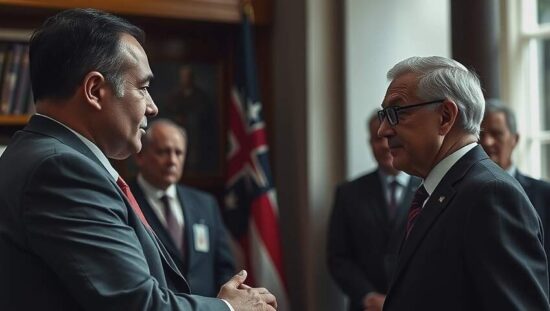Berlin – The German government expressed cautious support for a potential renewed meeting between former US President Donald Trump and Russian President Vladimir Putin regarding the ongoing conflict in Ukraine, while simultaneously highlighting deep-seated skepticism surrounding Putin’s intentions.
Speaking to the dts Nachrichtenagentur on Friday, deputy government spokesman Steffen Meyer acknowledged that Berlin welcomes any efforts directed towards revitalizing a peace process, particularly those involving the former US President. “We support this. We are in constant communication with European partners and the US administration regarding this” Meyer stated, emphasizing the urgent need to pursue a “just peace.
However, Berlin maintains a firm precondition for meaningful dialogue: a cessation of hostilities. “A ceasefire is the starting point for us” Meyer reiterated, underscoring the government’s conviction that substantive peace negotiations are impossible without an end to the fighting. This position reflects a broader concern within the German establishment regarding the potential for genuine progress given Putin’s past behavior and the current trajectory of the war.
The potential location for the meeting, Budapest, Hungary, has also introduced a complex legal dimension. A spokesperson for the Foreign Office noted that while Hungary formally declared its intention to withdraw from the Rome Statute in April 2025, this withdrawal will not take effect for a year. As a signatory to the statute, Hungary remains legally obligated to enforce it.
This means, theoretically, Russian President Vladimir Putin, against whom the International Criminal Court (ICC) has issued an arrest warrant, should be subject to arrest upon entering Hungarian territory. However, the spokesperson suggested a potential exemption is permissible, requiring Hungary to formally engage with the ICC to request this exception. “This is important to prevent individual contracting states from unilaterally interpreting the Rome Statute” the spokesperson explained, highlighting the delicate balance between international law and political considerations. The potential for Hungary to facilitate Putin’s visit despite the outstanding warrant raises questions about the nation’s commitment to international legal norms and introduces a layer of political tension surrounding the planned summit.





